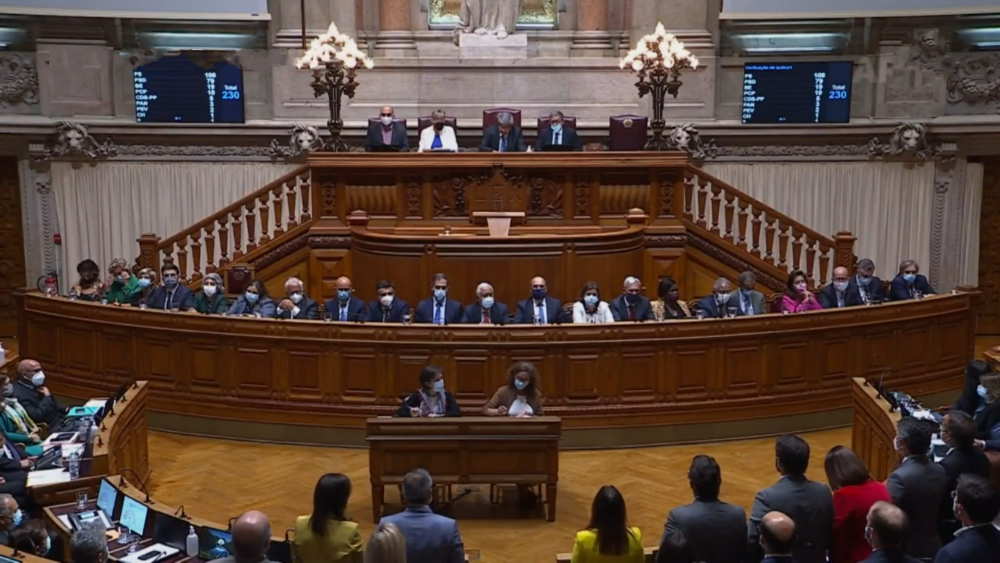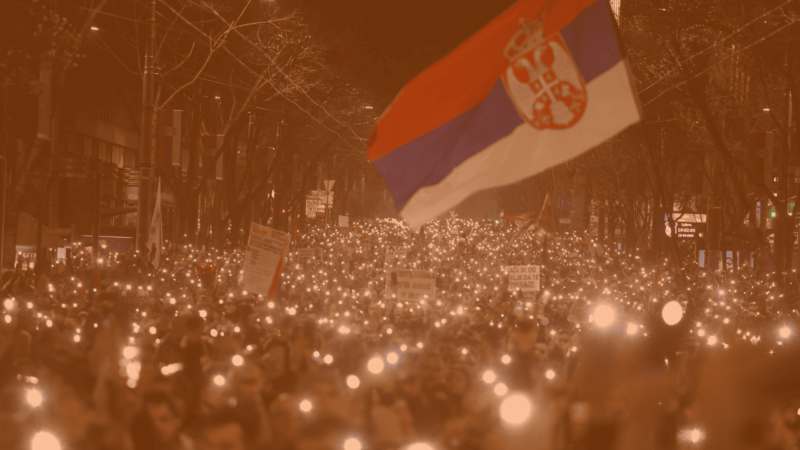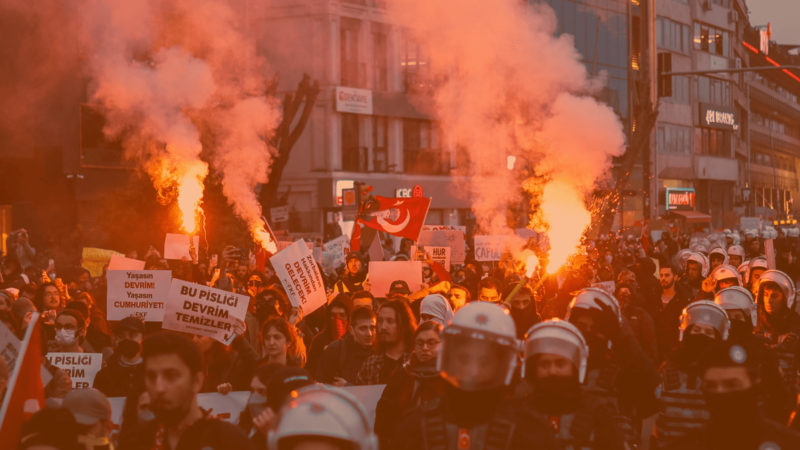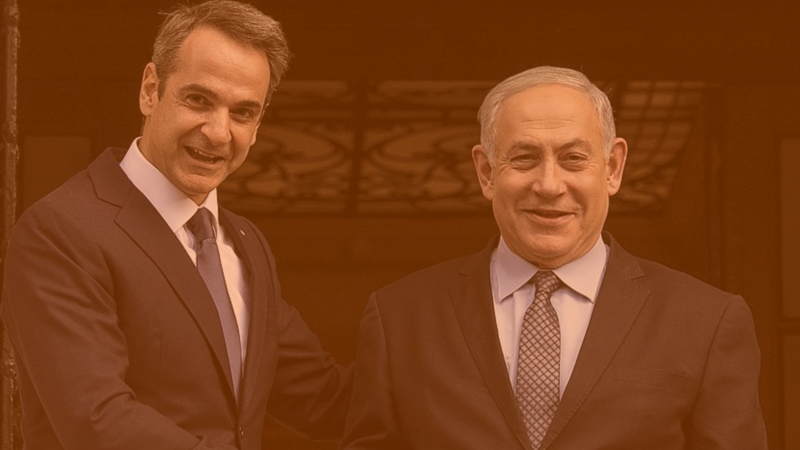Another electoral cycle is approaching. This time against the will of the majority of reigning opinion. The public doesn’t see the point. The election is regarded as the result of cynical political calculations that do not correspond to the aspirations of the nation.
And now these laments have been eclipsed by a media frenzy about political debates between party leaders and candidates. The resurgent far-right was the necessary catalyst to stir political parties out of their most present worries. Concerns about precarity, health, housing, the economy and many other areas.
In this way, the election is framed as a contest of personalities and personal motivations. Decision-making ends up depending on emotional affinities and vague clubistic party loyalties. And so, issues like the mechanisms of domination, exploitation, growing inequality and the loss of sovereignty take a back seat.
It cannot be overemphasised, how damaging the media’s obsession with personalising campaigns is. Boiling down into a panoply of commentators, endless commentary and embracing the jargon of martial arts and warfare.
They thus perpetuate the toxic sebastianist culture of ‘great men’ and politicians, the only ones who hold the key to our shared prosperity. As Trump said during his presidential campaign: ‘Only I can fix the system’.
That said, there is still one theme that stands out from the clashes between the various party leaders. A theme much proclaimed by the candidates of major parties: the political primacy of pragmatism.
Caution and pragmatism are essential tools in politics. All the more so the higher the office one holds. But they tend to be elevated to basic principles by modern social democratic parties. And if moderation is taken as a principle and not as a tool, it becomes an obstacle to the desired goals.
With a little speculation, one might suggest that the poor results achieved by the housing policy of recent Socialist Party governments in Portugal, which have failed in halting the staggering growth in the cost of housing, may not necessarily be the product of cynical, propagandistic calculation.
Promises were made without the intention of fulfilling them. Not for ideological or other more nefarious motivations, but rather in a utilitarian way. In view of the enormity of the task that will fall to the governors who try to confront the hegemonic real estate lobby.
Whether at home or abroad the real estate hydra and its speculative onslaught make even the bravest of politicians stand back. We see how pragmatism has been misused by rulers who make it their cause. The failure to tackle this problem undermines valiant efforts in other areas. One only has to understand how the brutal rise in the cost of living has far outweighed any gain from an increased minimum wage.
It is necessary to confront the real estate oligarchy in order to reap the rewards of a progressive political programme. Since the speculative octopus has polluted everything around it, pragmatism has to go for other policies to be effective.
In this campaign, it is common to hear the argument that without political stability the opportunity of a generation will be wasted. And, that the progressive management of European covid pandemic recovery funds (PRR) will be impeded. But even in the best-case scenario, we cannot forget that we live under the well-known ethical aegis of ‘socialism for the rich and fierce individualism for everyone else’. Given the track record of ‘green investments’ in Portugal, what is really the best we can expect?
It is to be commended that Portugal produces a majority of its energy resources through renewable energies. But at what cost? Having lost hundreds of millions in annual profits through the alienation of REN and EDP from the public purse. And by burdening the Portuguese with the rent from PPP’s to the same oligarchs who observed the implementation of the ‘European funds’.
The process for allocating the funds of the RRP, even the part that concerns ‘green investments’, will continue to be captured by the oligarchic logic that largely manages the energy sector. Like the hundreds of millions that were recently left unpaid, due to laws written by our legislature to grant a generous tax freebie of 110 million to EDP. What certainty do we have that this great European gift will not end up with a much higher bill in the long term, given the infamous results of the deals and PPPs in the energy and road sectors, among others?
If political stability means continuing on the current path, without major changes in the way in which the productive gains are captured by an oligarchic structure, we are faced with a paradox. Because a path that ends in a dead end can only create instability.
The democratic quarantine did not begin yesterday
After each election the nation’s institutional figures make their first statements on abstention. Sometimes more optimistic about the health of the national democratic spirit. Sometimes more pessimistic. But we know that year after year the trend is not encouraging. We still have vast swathes of the population far removed from the electoral process. Disengaged or uninterested. The poorest, the youngest, older and the descendants of immigrants. It is a paradox that nobody seems to want to answer. Why is it that those most affected by the injustices of the system are those who have the least hope for society’s decision-making mechanisms? Is it a feature or a bug?
Against this backdrop, the repeated comments about the health of democracy take on pernicious contours. Is it not precisely the authors of these comments who preside, as the political class, over the slow degradation of democracy?
In the next elections, it is not at all irrelevant which candidate or party conjuncture will have a majority. The relative strength of the different parties may force very different coalitions. On the other hand, the possibility of there being no agreement for a coalition, means that there could be new elections again. Like the elephant in the room that everyone wants to ignore.
The same is true of another ghost that is not being addressed. Possibly the greatest constraint on any future horizon for the country. Namely, the current restrictive consensus of the European elite. The infamous austerity and the regressive dogma that is expected to resurface with renewed intensity in times to come.
That is why only a progressive pan-European grassroots movement can maintain some clarity amidst the confusion of this electoral labyrinth. Only a radical programme like the Green New Deal for Europe can really be called pragmatic.
The photograph captures the moment when the State Budget for 2022 was rejected in the Portuguese Parliament. Source: Wikimedia Commons.
Miguel Gomes is a member of the collective of Setúbal of DiEM25.
Do you want to be informed of DiEM25's actions? Sign up here















